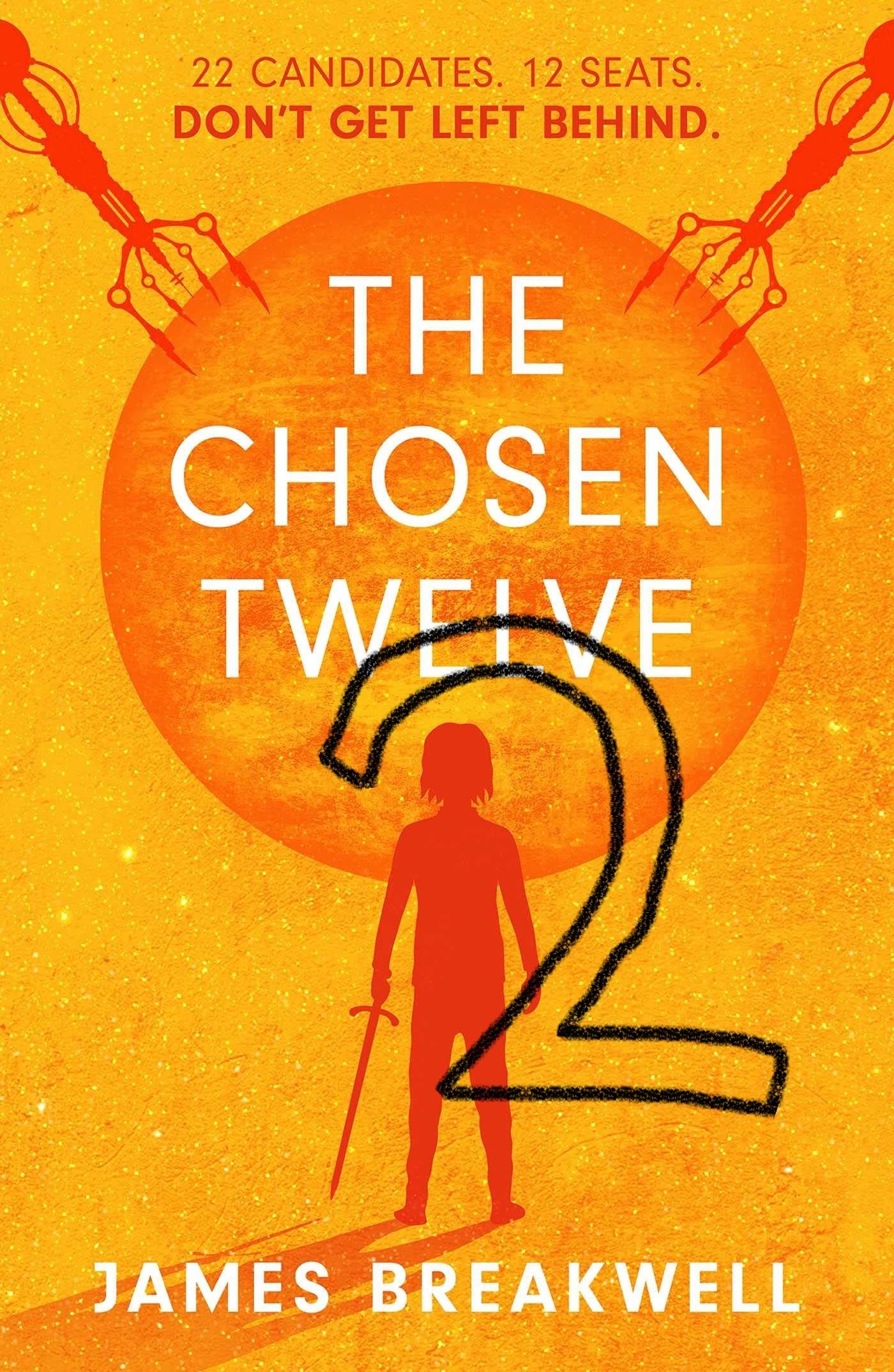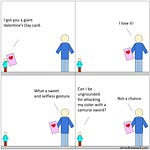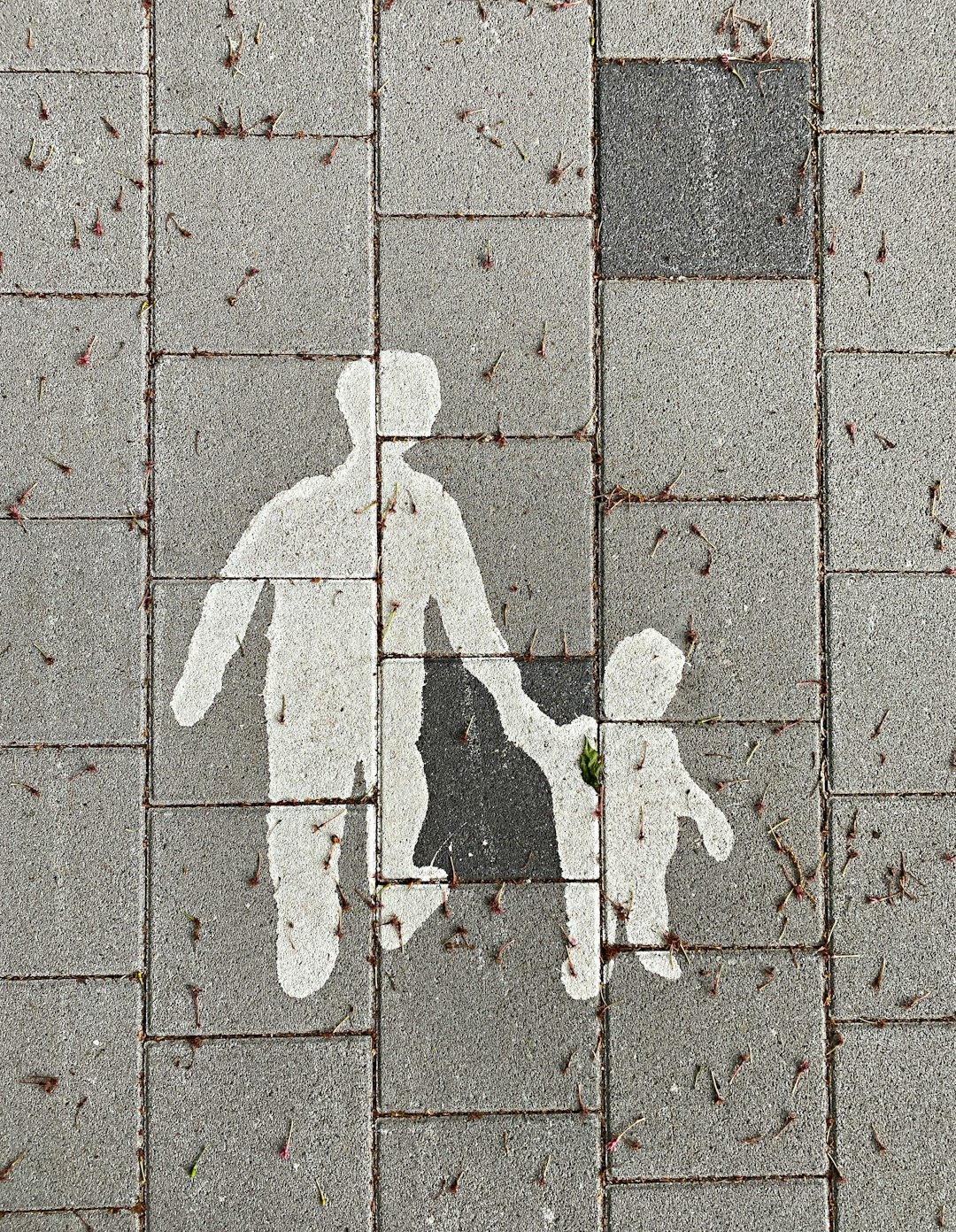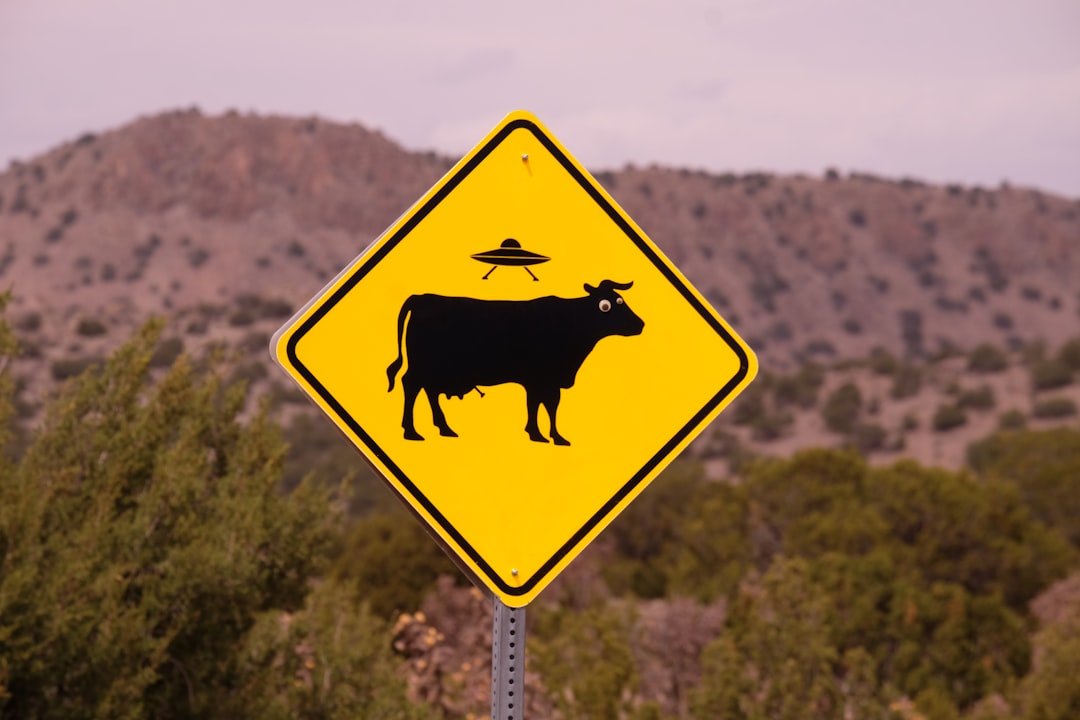First, the news: There will be a sequel for The Chosen Twelve. I got the green light, and I’m ecstatic. For months, people have been asking me if the story would continue, and until now, I couldn’t give them an answer. Even though I conjured up these characters from my imagination, their future wasn’t in my hands. It was up to the publisher, who had to look at sales numbers, reviews, and the phase of the moon (It’s an established fact that most publishing professionals are werewolves). Finally, all the metrics pointed in the right direction, and the publisher made an offer for the sequel. If you ever wondered if your decision to buy or not buy a book matters, here’s the proof. I made it to the next book in the series because of you.
A hypothetical mockup of what the sequel cover might look like. If the graphic designer was five.
The hard truth is that the careers of midlist authors like me are always touch and go. This will be my eighth book (number seven is a children’s picture book due out in 2023). It sounds like I have it made. If you told me in 2016 before my first publishing deal that I’d one day make it to book eight, I’d have done a jig. (Then I’d have fallen flat on my face and been cursed by my late Irish grandmother for my inferior dance moves, but that’s neither here nor there.) My title count gives a misleading picture. Making it to book eight doesn’t mean I don’t get rejected anymore. In fact, the more I write, the more I get shot down. A book that doesn’t make it to print is one where every single publisher says no. A book that does make it is one where every single publisher says no, save for one. Finding that one yes in an ocean of nos is more art than science. Dark art, actually. Props to my agent, Mark Gottlieb, of Trident Media group, for pulling it off once again. You’re a wizard, Harry. (And, yes, Mark, I’ll be calling you Harry from now on.)
Now that I’ll live to write another day, I’m in a reflective mood. I want to share something with you that I’ve never talked about before. It’s the story of my greatest writing success, and also of my greatest literary failure. It should be easy since they’re the same book. It’s one you’ve never read, and most likely one you never will. But the one person who did experience the story changed the way I think about writing. Let’s talk about what it even means to succeed in publishing.
When people ask me how my books are doing, I never quite know what to say. I can tell you how many copies I’ve sold (a bunch) or how much money I’ve made (not as much as you’d think), but neither of those metrics means much on its own. Just because [insert your favorite big name author here] sold a hundred times more books than me or made a thousand times more in royalties doesn’t mean they succeeded or that I failed. Success isn’t just making it on the New York Times bestseller list or climbing to the top of that list or staying on top for a hundred weeks in a row. (I’m sure there’s an author out there who was number one for a hundred weeks and is absolutely devastated they didn’t make it to week a hundred and one.) As far as I’m concerned, a book is a success if it makes it out of your head and onto the page, even if that page is just in a Microsoft Word document on your laptop. After that, a lot of what happens is out of your control. All you can do is write the best book you can. Oh, and shill the hell out of it. A little shameless self-promotion never hurt anyone.
Every book ever written is a tiny act of narcissism. Sometimes, a not so tiny act. The Chosen Twelve, for example, is 90,000 words. Even though it’s about imaginary children and killer robots on a made up moon thousands of light years away, it was also, somehow, about me. At one point in the book, the children question whether it’s even worth saving the human race. To continue the species, they’ll have to land on the planet below and battle the lifeforms entrenched there. Instead of invading, one human in particular, Theta, wants to live out his life in peace and let the human race quietly fade away. He pitches that idea to his girlfriend, Alpha, who spent an unknown number of years making one drawing every single day. Alpha doesn’t take the idea well:
Alpha felt a sudden dread harden in her chest. She had no desire to land herself or to fight anyone. But the idea of not landing at all struck her as so final. If they stayed on Comus, they would really be the last organics ever to live. She put her pencil down.
“I agree with you,” Alpha said. “I really do. It’s just, I don’t know. If we stay up here, this is it. It's just us. And when we're dead, organics are over. There will be no one left to read our books. Or see our art. It'll be like we never existed.”
Theta opened his mouth to say something, then closed it. Behind him, Spenser adjusted his spider legs again. Theta sat next to Alpha and put his arm around her. She leaned her head against his shoulder. They looked up at the stars together.
“Is your art more or less valuable if a thousand organics see it?” Theta asked.
“There aren't a thousand organics,” Alpha said. “There are only twenty-two.”
“But if there were a thousand organics, and all thousand of them saw it, would that make your drawings mean more than if only one person saw it?”
“No.”
“And what if nobody saw it?” Theta continued. “Would it still be art?”
“Yeah,” said Alpha. She closed her fingers around a loose fold of fabric on Theta’s jumpsuit. She felt like crying.
“Art has value because you create it,” Theta said. “Not because anyone ever sees it. Everything that organics have ever done—that we’ve done—still matters, even if no one comes after us. Don’t listen to Rho. Life isn’t a record of great deeds. It’s a moment. It’s right now.”
“Sure,” Alpha said. She blinked back tears. She thought about all the lives that could be saved if they never landed. And she thought about every picture she'd ever drawn, lying unobserved for all eternity in a station filled with scattered bones.
I’m not going to claim anything I’ve done has risen to the level of art, but I do think it has a value regardless of its audience size. My greatest success and most concrete failure had a readership of exactly one. It was a middle grade book about a young girl named Lida Longbow who could pick any lock, no matter how complicated. She was raised by a single father who was a con artist, but not a very good one. He was constantly getting into jams, and Lida had to rescue him from cops and criminals and everyone in between. The pattern continued until finally her dad got tangled up in a crisis so big that the fate of an entire city was in the balance, and it was up to Lida to save the day. I won’t pretend it was the greatest book ever written, but I did think it was the kind of story my daughters would enjoy. I should know. I read it to them. Every night before bed, I narrated a few chapters. Three of the girls were too young to pay much attention, but Betsy, who was eight at the time, was at the perfect stage for it to resonate. She was spellbound and couldn’t wait for it to come out in print.
Obviously, it never did, but Betsy hasn’t forgotten about it. It’s frozen in her mind as one of the best books of all time. If she read it now, I doubt it would hold up, but it’s shielded in her memory by a layer of nostalgia. Remember the Pharma Bro, Martin Shkreli? He rose to infamy by buying the rights to cheap medicines and jacking up the price. But before he went to prison, one of the things he did with his ill-gotten millions was buy the rights to a Wu Tang Clan album no one had ever heard. The greatest luxury he could think of was to have something that would only ever be enjoyed by him and no one else. Well, Betsy got that, too. She has a book written just for her, all for the low, low price of free.
Every time I tell Betsy that I landed another book deal—every single time—the first thing she asks me is, “What about Lida Longbow?” And each time, I tell her, “That one’s still just for you.” Is it better to have a book that’s read by everybody in the world or one that means the world to a single reader who means the world to you? I have my answer.
The Chosen Twelve is a success because it made it to book two, but it would have been a success even without that. It succeeded because I wrote it into existence after years and years of it living only in my imagination, and it succeeded because it meant a lot to readers who meant something to me. I’ve gotten more emails about The Chosen Twelve than anything else I’ve ever put out. People are legitimately invested in the fate of a group of fictional kids on the other side of the galaxy. I might not be writing for an audience of millions, but I am writing for an audience that cares, and that makes all the difference.
So here’s to the next adventure. If you haven’t read the first one yet, now is a great time to catch up. I recommend buying a signed copy from Main Street Books in Lafayette, Indiana. They appreciate each and every sale. You can snag one of those here: Indie bookstores rock.
A big thanks to all of my paid Substack subscribers. You help bring stability and order to an industry where income is, by design, defined by inconsistency and chaos. Thanks to you, I’ll be able to stick with this for the long haul. As for Lida Longbow, that one’s still just for Betsy. I hope she never stops asking about it. Maybe someday she can read it to her own kids, if that’s the direction her life takes. Success and failure are never about numbers; it’s about love. And I love that I get to write this next book for all of you.
Anyway, that's all I've got for now. Catch you next time.
James














Share this post